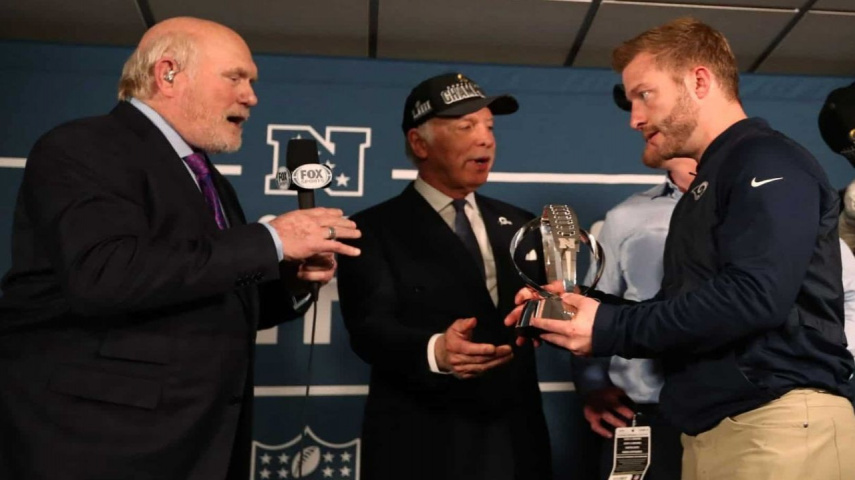Who is George Halas and why is the NFC Championship Trophy named after him?
Discover why the NFC Championship Trophy is named after NFL pioneer George Halas and explore his lasting impact on football history

Securing victory in the NFC Championship Game not only guarantees a Super Bowl spot but also claims the George Halas Trophy. Ever wondered why it's named after George Halas?
As NFL playoffs near, fans ponder trophy names, suggesting alternatives like Tom Landry. However, with 40 coaching years and six championships, George Halas remains unparalleled. He's not just a coaching legend but the founding father of the NFL and the Chicago Bears.
Join us in uncovering the history and significance behind the NFC Championship Trophy, a tribute to George Halas' enduring legacy.
Who is George Halas?

ALSO READ: Ranked: Top 8 NFL playoff teams
George Stanley Halas, affectionately known as "Papa Bear," played a pivotal role in American football and significantly shaped the National Football League (NFL). Born on February 2, 1895, in Chicago, Illinois, Halas had a solid connection to sports from an early age. He excelled in various athletic pursuits during his college years at the University of Illinois, participating in football, baseball, and track and field.
Halas entered the professional football scene in 1920, becoming a part of the newly established American Professional Football Association (APFA), later evolving into the NFL. A skilled end, he played for the Decatur Staleys in the league's inaugural season, contributing as a player and coach. In 1921, he relocated the team to Chicago and renamed them the Bears, a franchise closely associated with his name.
Halas smoothly transitioned into coaching while still actively playing for the Bears, showcasing a profound understanding of the game. His coaching career spanned several decades, during which he guided the Bears to six NFL championships. Renowned for his inventive strategies and unwavering work ethic, Halas left an enduring impact on the sport, securing his place in the Pro Football Hall of Fame as a coach in 1963.
Why is the NFC Championship trophy named after George Halas?
Halas is widely regarded as a key figure in establishing the NFL. While the initial meeting included various team owners and managers, Halas is primarily credited for his pivotal role.
His significance in shaping the present-day NFL extends beyond that initial meeting. Halas brought the Illinois standout, Red Grange, to the Bears. This move attracted a substantial crowd of 40,000 to Wrigley Field for the next Bears game, contributing to the league's legitimacy and popularity in its early stages. Halas' influence is evident in the current state of the league.
He was the trailblazer in broadcasting his team's games on the radio and introducing innovations like watching game films and placing assistant coaches in the press box. Additionally, he stands out as one of the most accomplished coaches in the game.
Across multiple coaching stints with the Bears, Halas secured six NFL championships and 324 victories. His 324 wins led the league for nearly three decades, ranking second-highest by the end of the 2021 season. His six titles are on par with Curly Lambeau and Bill Belichick. Halas is synonymous with winning the NFC Championship, and the trophy lifted by the champions bears his name.
The George Halas Trophy was initially presented to the NFC victor during the 1984-85 NFL playoffs, with the San Francisco 49ers claiming the honor. Notably, the 49ers secured a decisive 23-0 triumph over the Bears in that event. The original trophy featured a wooden base adorned with sculptures, showcasing the NFC logo at the forefront and a group of football players in the background.
For the 2010-11 playoffs, the trophy underwent a redesign, now resembling a scaled-down version of the Vince Lombardi Trophy. The trophy, while symbolizing achievement, can evoke mixed emotions for a team that falls short of winning the Super Bowl. In such instances, it serves as a reminder of the team's inability to clinch the ultimate victory.





 JOIN OUR WHATSAPP CHANNEL
JOIN OUR WHATSAPP CHANNEL






































































































